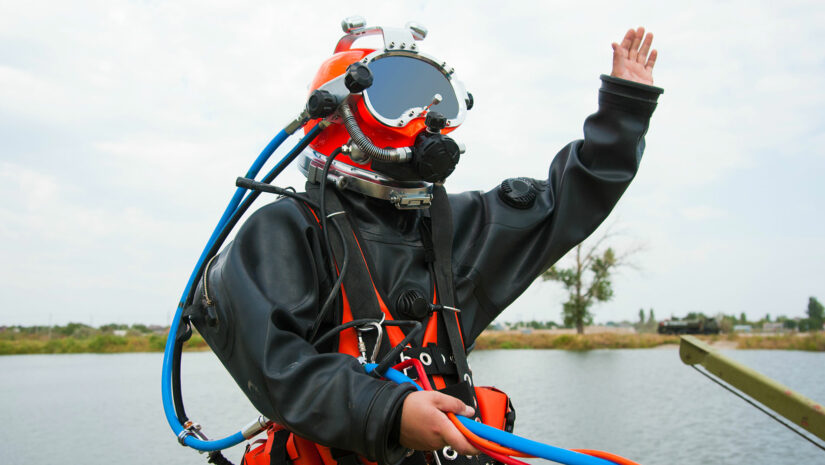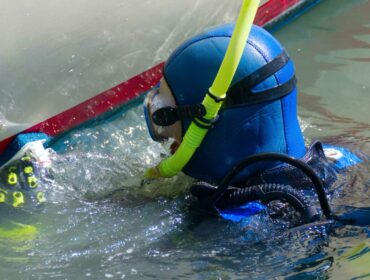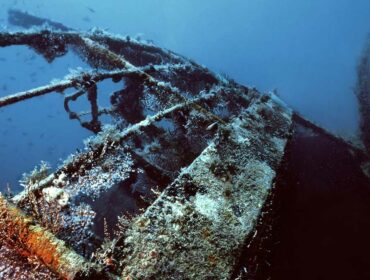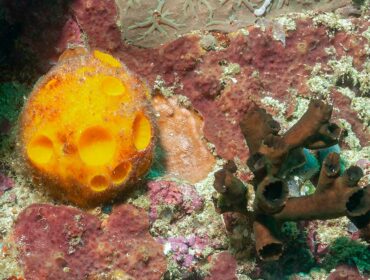In a previous post, we talked about how you could turn your passion for scuba diving into professional work by being a scuba instructor or dive master on cruise ships, in resorts, or even for liveaboards. If you’re looking to for a more challenging and higher-paying scuba job without the glamour, commercial diving may be for you.
There is a much wider array of scuba jobs in the commercial diving industry, plus it pays well as the skill sets required are unique and definitely more difficult than recreational diving.
Training to be a Commercial Diver
If you’re interested in a career in commercial diving, be aware that it can be a grueling process. Commercial diving uses different scuba diving equipment depending on the job at hand and is often very demanding, both physically and mentally. The training is also significantly different.
To become a certified commercial diver, you have to go beyond earning a diving certification and enroll in a more advanced commercial diver training program at an accredited commercial dive school. This is where you will be required to reach greater depths in open water, with specialized dive equipment and in the most difficult and hazardous environments, in order to gain the required certifications (like an ADCI certification) and work as a certified commercial diver and dive tender.
Commercial diver training is grueling as the risks are high, and both efficiency and safety are prioritized. However, for most professional scuba divers, a commercial diving career is very exciting, fascinating, fulfilling, and of course very lucrative.
Scuba Diving Careers

Here’s a look at a few popular categories of commercial scuba diving jobs that you may want to consider for your own career path:
Offshore Diving
Hard hat diving on offshore oil and gas platforms and pipelines for surveying, building, and maintenance is also part of a commercial diver’s job. This field, however, may require additional skills like underwater welding and other knowledge of the trade. Offshore divers could be working long hours, for weeks at a time, until a project is completed. The conditions for commercial offshore diving are extremely harsh, so commercial divers are required to undergo rigorous training and be equipped with special equipment.
Onshore Diving
Onshore divers (also called “inland commercial divers”) do similar work as offshore divers in terms of ship-hull repairs, pipeline tasks, and welding, but for smaller bodies of water like lakes and rivers. The job may also include salvaging, topside welding, and water system cleaning, but they are generally less taxing than offshore diving. Since it’s a lot safer, it may also entail lower wages (compared to their offshore counterparts).
Diving Engineer
Engineer divers are tasked to lead inspections of underwater repairs, buildings, demolitions, salvages or wrecks, and other marine infrastructure. They are also responsible for planning and managing underwater operations that involve engineering practice.
Other skills like surveying and underwater welding may be required in this field.
HAZMAT Diving
Although it is considered one of the dirtiest jobs in commercial diving, HAZMAT divers generally get a higher wage. They deal with hazardous materials (like radioactive nuclear material), raw water sewage, and other toxic waste. The job may also include making underwater repairs, maintenance, and cleaning, usually in pipelines and chemical vats.
HAZMAT diving equipment typically includes pressurized and sealed rubber diving suits with built-in gloves for protection and safety.
Media Diving
Commercial diving jobs in this category include professional underwater photography and filmmaking. More often than not, media divers are tasked to produce underwater footage for TV and film documentaries. It’s the perfect job for those with recreational diving experience and a passion for photography and filmmaking.
Seafood Harvesting
Just as it sounds, this job entails divers to harvest seafood such as urchins, sea cucumbers, and geoduck clams. The diving is seasonal and returns are based on the value of the product harvested, so it can range from $4000 to $5000 a week, or more.
Police Diving
Public safety divers work in law enforcement, search and rescue, and other similar industries. This type of commercial diving involves search procedures or rescue missions in bodies of water; searching for and recovering a wide range of objects such as illegal materials, cadavers, and other pieces of evidence; and many more tasks. But like many other commercial diving jobs, you’ll need prior experience for this so you should already be in police service (not to mention scuba certified) before going for this job.
Military Diving
If you are already enrolled in the military, you can opt for this position. Military diving is very demanding and suitable for those who are into risky and challenging work, like bomb diffusion, demolition jobs, sabotage, and intensive search-and-rescue tasks. It also usually means diving in appalling conditions, confined spaces, and low visibility.
Other types of scuba jobs include environmental surveying, vessel salvage, scientific/research diving, search and recovery, and many others. If you’re interested in learning about other commercial diving jobs, you can always check out the course offerings of top commercial diving schools in the United States.




